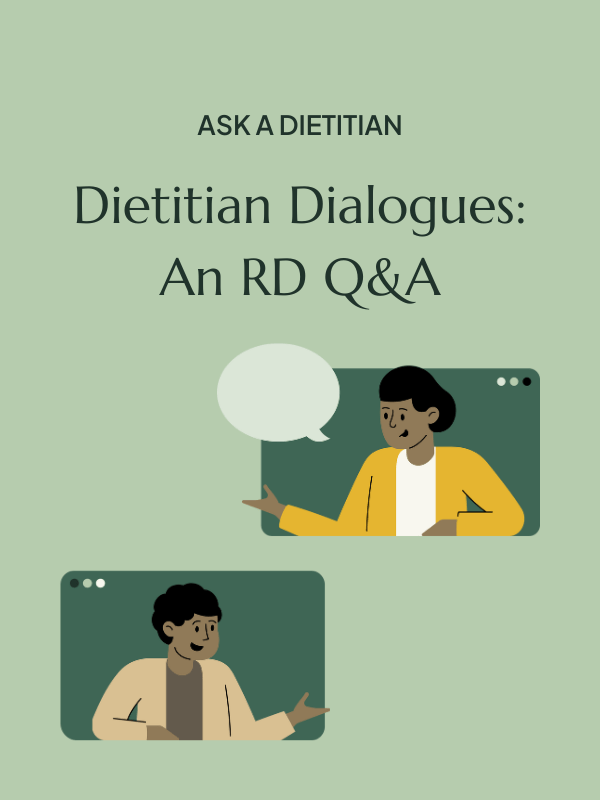Protein powders have gained significant popularity and can be found anywhere and everywhere, from pharmacies to supermarkets and gyms. If you’re wondering about the buzz around protein powders and whether they should be a part of your routine, you’re in the right place. We’ll explore the world of protein powders, their potential benefits, and considerations to help you make informed decisions.
What Are The Benefits Of Protein Powder?
Protein is a macronutrient that provides the building blocks of our hormones and neurotransmitters, is vital to maintaining, repairing and building muscle, and supports our hair, skin and gut health. Protein requirements can vary based on factors like sex, age, and activity level.
While most individuals fulfill their protein needs through their regular diet from protein-rich foods including eggs, poultry, fish, meat and dairy products, some people may need extra protein, especially those with specific dietary requirements or health conditions. For example, vegans and vegetarians might struggle to obtain sufficient protein from plant-based sources alone, so a protein powder can come in handy.
Pregnant women also have higher protein requirements to support the growth and development of a fetus. Furthermore, individuals recovering from surgery or postpartum or those experiencing significant unexplained weight loss and even athletes have increased nutrient needs, and a protein powder can assist in meeting those needs.
As mentioned, the recommended protein intake varies based on factors such as age, sex, weight, activity level, and health goals. For sedentary individuals, about 0.8 grams of protein per kilogram of body weight is generally recommended. Active individuals or those exercising regularly may need a higher intake of 1.2 to 2.2 grams per kilogram of body weight. Menopausal women may benefit from protein intakes of 1.0 to 1.2 grams per kilogram of body weight, while pregnant women are advised to consume approximately 1.1 grams per kilogram of body weight.
If you generally eat enough protein from whole foods, then taking a protein powder may not be necessary. However, for the majority of people it isn’t harmful to include a protein powder every now and then for the following reasons:
- Supplementing with protein may improve muscle recovery as post workout fuel.
- Protein supplementation may help with lower incidence of delayed onset muscle soreness (DOMS).
- Adding a protein powder can increase the protein content and fullness factor of a snack (like a fruit smoothie).
- Collagen protein for hair, skin, nails and gut health support.
- Protein supplement to support digestion challenges or to provide nourishment when dealing with a low appetite.
What Are The Best Protein Powders?
It is essential to understand that the quality of protein powders can vary. Not all protein powders contain the complete set of 9 essential amino acids (EAAs). Complete proteins, which are considered to have high biological value, contain all 9 EAAs that our body requires from food to carry out essential bodily processes. While animal protein sources typically provide complete proteins, many plant-based proteins are incomplete as they may lack some of the EAAs.
Whey protein is often regarded as an excellent choice for protein supplementation due to its complete profile of all 9 essential amino acids (EAAs). It is derived from milk as a by-product of cheese production. One of the advantages of whey protein is its high digestibility, making it easier for the body to break down and utilize compared to other protein supplements.
Whey protein can be beneficial for individuals aiming to gain weight, build muscle, or struggling to meet protein and calorie needs through food alone. When used in conjunction with a calorie surplus and strength training exercises, whey protein supplementation can support muscle growth. It is rich in branched-chain amino acids (BCAAs) like leucine, which are important for muscle repair and growth. However, it’s important to emphasize that consuming more protein alone won’t lead to muscle mass gain without proper strength training and overall calorie intake.
Soy protein is a standout among vegetarian protein powders because it is a complete protein that contains all nine essential amino acids (EAAs). However, the amino acid composition can vary among different plant-based protein sources. To achieve a balanced and high-quality protein blend, it’s a good idea to combine various plant protein sources.
For instance, combining pea and rice protein in a blend can be beneficial as they complement each other by offering the amino acids that may be lacking in one source alone. This approach ensures a well-rounded protein profile for individuals following a vegetarian diet, but always do what is best for you.
If you’re feeling like whey protein is right for you, you’ll want to choose a plain, 100% whey protein powder without added sugars, artificial sweeteners, or additives to ensure the highest quality product without unnecessary ingredients. Similarly, when selecting vegetarian protein powders, look for those with minimal additives and a well-rounded amino acid profile to get the most value from your choice.
Other popular protein powders include casein, collagen and egg protein. Casein is another protein derived from milk. It is slower-digesting compared to whey protein, providing a sustained release of amino acids over a longer period of time. Collagen protein powder is derived from animal sources and provides specific amino acids that are often used for its potential benefits to hair, skin, and nail health. Egg protein powder is derived from egg whites and is a complete protein source. It is an option for individuals with dairy or soy allergies.
When it comes to choosing the best protein powder for each person, it will vary based on your unique needs and preferences. Considering factors like taste, texture, ingredient quality, allergens, and seeking guidance from healthcare professionals or a registered dietitian can help in selecting a protein powder that aligns with your unique health goals. Taking the time to read product labels and potentially exploring third-party testing can also provide valuable information when making the best decision.
Protein powders for weight loss
If your goal is to lose or maintain weight, prioritizing protein as a macronutrient is crucial. Protein has unique properties that make it beneficial for weight management. One of these benefits is its ability to prolong the suppression of the hunger hormone ghrelin more effectively compared to other macronutrients like carbohydrates or fats. When you consume protein as part of a balanced meal, it helps you feel full and satisfied for a longer duration. This feeling of satiety can support weight loss efforts.
In addition to curbing appetite, consuming enough protein is important when losing weight to prevent muscle loss. Protein provides the building blocks needed to maintain muscle mass, which is essential for a healthy metabolism. Muscle tissue is more metabolically active than fat tissue, meaning it burns more calories even at rest. Preserving muscle mass helps keep your metabolism functioning well supporting personal weight loss goals.
Protein also has a higher thermic effect of food compared to carbs and fats, meaning your body burns more calories to process and use protein. This can slightly increase your metabolic rate and support weight management. Protein powders help you feel fuller, preserve muscle mass, and increase calorie expenditure, aiding in weight management goals.
Protein powders for blood sugar management
Protein, including whey protein, can have a positive impact on blood sugar control, particularly if you are focused on managing your blood sugar levels. When protein is included in a meal, it can help stabilize blood glucose levels and prevent drastic spikes and drops.
Many research studies, including one published in BMJ Open Diabetes Research and Care have investigated the effects of whey protein supplementation on blood sugar management, particularly in individuals with diabetes. One mechanism by which whey protein may contribute to improved blood sugar control is by slowing down gastric emptying. This means that the digestion and absorption of nutrients, including carbohydrates, are delayed, resulting in a more gradual release of glucose into the bloodstream. Slower gastric emptying can help prevent sharp increases in blood sugar levels after a meal.
Consuming whey protein before a meal can stimulate insulin release, which helps transport glucose into cells for energy or storage. This can reduce post-meal blood glucose levels. However, the effects of protein supplementation on blood sugar control can vary among individuals and depend on factors like the amount and timing of protein intake and individual metabolic responses.
Side Effects of Whey And Who Shouldn’t Take It
Whey protein may not be suitable for individuals with a dairy allergy or lactose sensitivity. For some people, it may cause acne flare-ups. Flavored whey protein powders with artificial sweeteners can also cause gastrointestinal side effects if consumed in large amounts. It’s important to consider individual allergies, sensitivities, and preferences when deciding whether to consume whey protein.
Final Thoughts on Protein Powder
Protein powders can be a convenient and effective way to supplement protein intake, especially for those with specific dietary needs or health conditions. It helps to support muscle growth, aid in weight management, help meet increased protein requirements, and assist in controlling blood sugar levels. However, it’s important to choose high-quality protein powders, consider individual allergies or sensitivities, and consult with a healthcare professional or registered dietitian to determine the right type and dosage for your specific needs. Protein powders should be used as part of a well-balanced diet and should not replace whole food sources of protein.
It’s important to recognize that individual protein needs can vary significantly from person to person. Factors like age, sex, weight, activity level, health conditions, and specific goals all play a role in determining optimal protein intake. A registered dietitian can assess your unique circumstances, consider any dietary restrictions or health concerns, and provide tailored recommendations for your protein intake.






